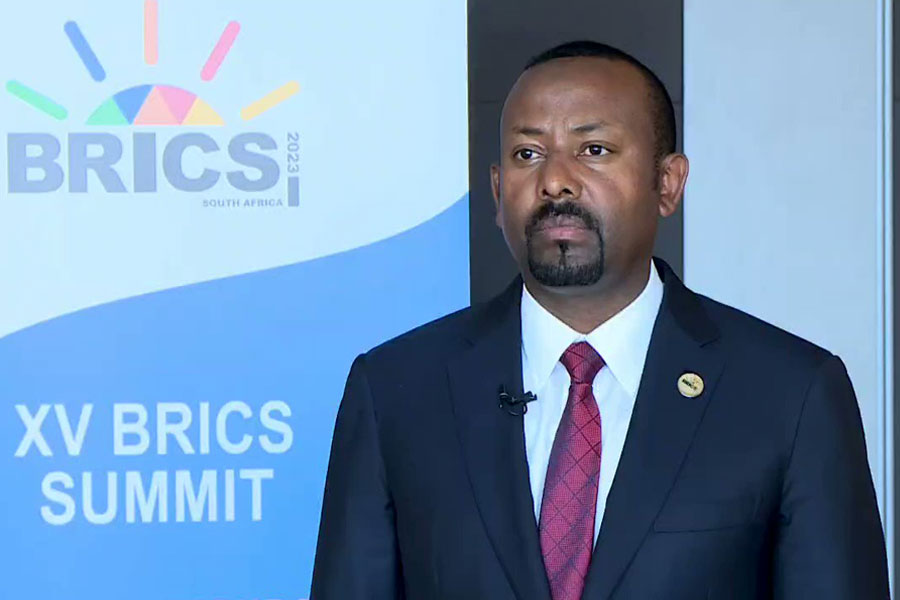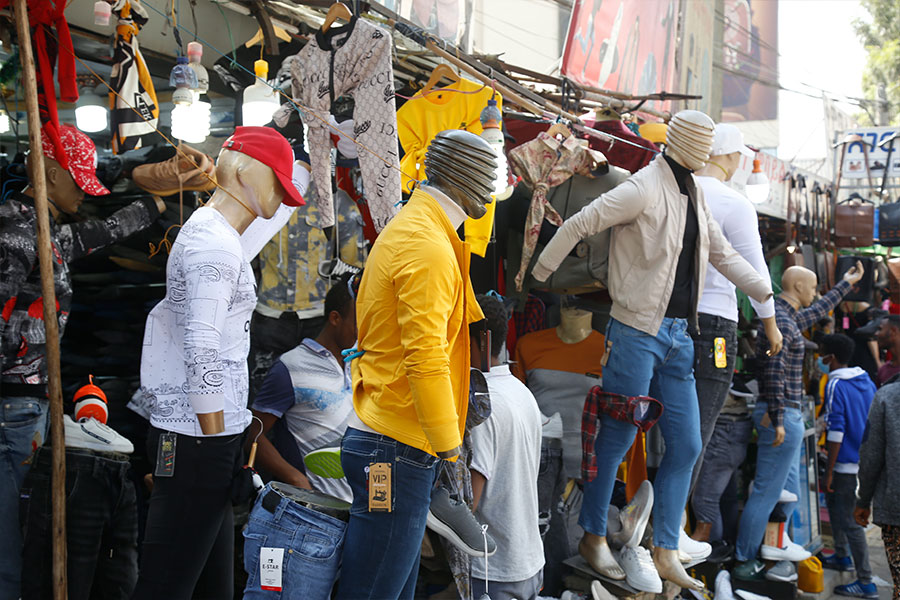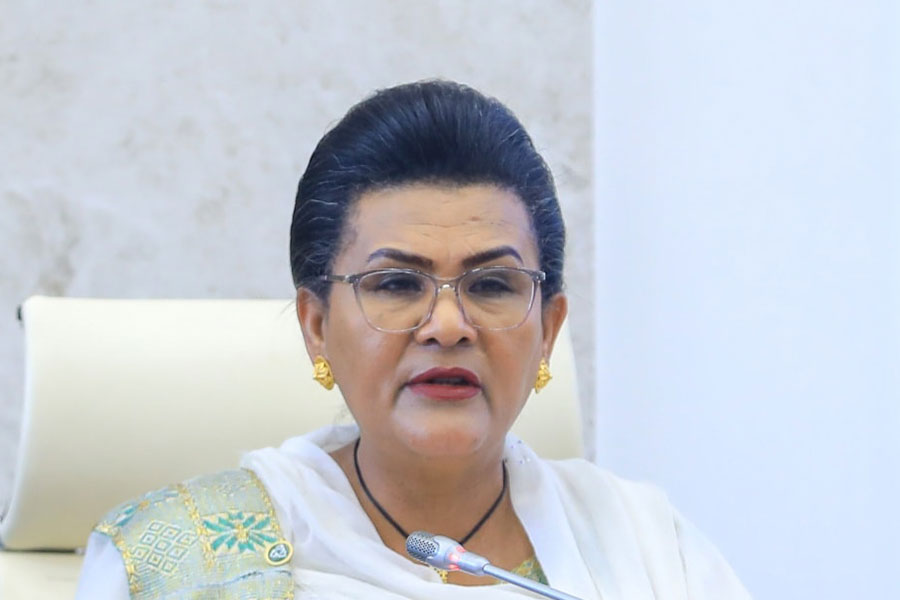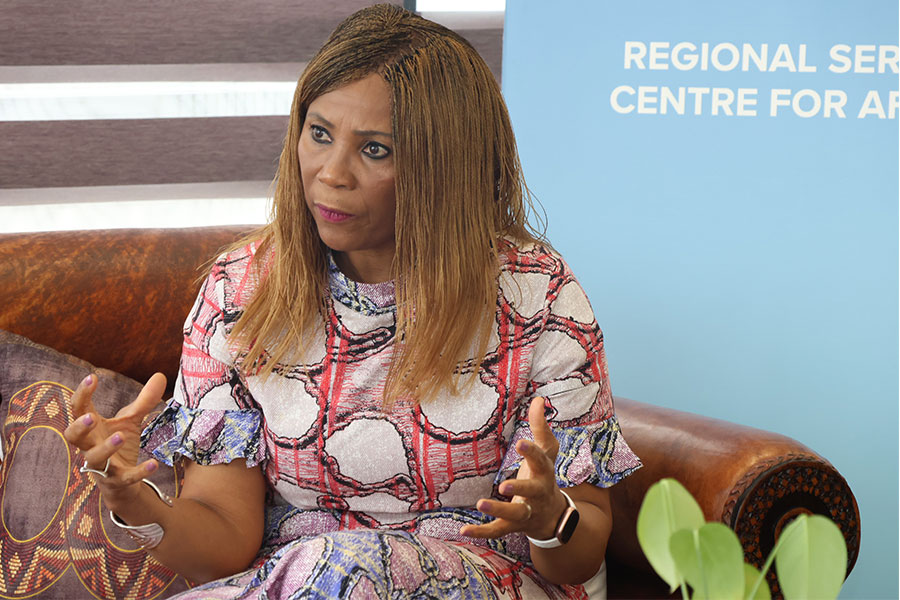
In-Picture | Oct 06,2024
Oct 20 , 2024
By Jim O’Neill
Russian President Vladimir Putin will host the 2024 BRICS (Brazil, Russia, India, China, and South Africa) summit this month. It will be the first annual meeting to include the four new members — Egypt, Ethiopia, Iran, and the United Arab Emirates (UAE) — who joined last year. Many other countries reportedly will also participate.
But what will come of it?
The BRICs were originally an acronym that I used (in 2001) to describe what I saw as the world's key emerging economies. But, former Russian Foreign Minister Igor Ivanov and his Brazilian counterpart, Celso Lafer, had the idea of building on my coinage. The BRICs turned themselves into a political club, adding South Africa in 2009.
Putin undoubtedly will use this year's summit to signal to the world that he is not as isolated as Western governments want him to be. It is an ideal occasion for him and other leaders to promote a vision of a world that the United States (US) does not lead. But, it is worth noting that two other countries that were expected to join the expanded BRICS have not done so.
After originally accepting the invitation, Argentina reversed course following Javier Milei's election as president in 2023; and Saudi Arabia still has not decided what it will do. One can guess why the Kingdom would be reluctant to join. It still prizes its defence and security alliance with the US, and those ties will grow even stronger if it ever normalises relations with Israel. More to the point, it is not clear what the Saudis, or any others, stand to gain from BRICS membership.
To be sure, there are photo ops. BRICS+ leaders can stand alongside Putin and decry their countries' underrepresentation in many of the big global governance organisations. They do this every year, and it appears to be one of the only real achievements that comes out of each meeting. The BRICS have done nothing to effect meaningful organisational or structural change within international institutions. In fact, they have done exactly the opposite.
Owing to the evolving geopolitics around Ukraine and the rise of more nationalistic leaders in the West and within the BRICS, international institutions have been rendered even less effective.
Global challenges cannot be addressed through narrow groupings like the BRICS (or the G7, for that matter), and this will remain the case no matter how many members they add. What we really need is a rejuvenated G20, which proved highly effective in its earliest days following the 2008 financial crisis. Despite being rather large (it includes all members of the G7 and the BRICS), it best reflects today's world in all its complexities.
It is not clear to me that the BRICS had ever shared a purpose beyond symbolism. There are many areas where it could pursue collective action to benefit its members and the rest of the world. These include, but are not limited to, advocating freer trade among themselves (and others), and making stronger commitments to fight climate change and infectious diseases. True, the launch of the New Development Bank – which was initially called the BRICS Bank – was a positive development; but the institution has never had a clear, powerful mandate linked to shared goals.
The 2024 summit will surely include plenty of lofty statements about creating an alternative to challenge the US dollar-based global monetary system. But, until the key members – namely China – are serious about opening up their own capital accounts and financial markets, this is not going to happen. Similarly, until the two most important members, China and India, can agree to cooperate on joint initiatives, the BRICS will have almost no chance of delivering on its stated ambitions. As matters stand, these two major powers remain historic rivals, and have been engaged for years in military skirmishes along the Himalayan border.
For all these reasons, BRICS+ will come to little. The hodge-podge of new members appear to have been selected not for any long-term strategic reasons, but because they can be cajoled. Egypt, Ethiopia, and Iran may be among the 12 largest emerging economies in terms of population, but they are hardly the most dynamic; equally, the UAE is much wealthier than the others, but it is a very small country.
Where are Mexico, Indonesia, and the other exciting Asian economies from the top 12?
The answer hardly matters. Even if they – along with Bangladesh, Nigeria, Pakistan, the Philippines, Turkey, South Korea, and Vietnam – did join, the result would be little more than larger summits. The G20 would still be the more appropriate and effective vehicle for multilateralism.
PUBLISHED ON
Oct 20,2024 [ VOL
25 , NO
1277]


In-Picture | Oct 06,2024

Radar | Aug 26,2023

Fortune News | Jan 03,2025

Commentaries | Apr 28,2024

Delicate Number | Jun 14,2025

Featured | Jul 06,2025

Editorial | Dec 30,2023

Fortune News | Jun 29,2025

Fortune News | Jul 14,2022

Exclusive Interviews | Aug 03,2025

Photo Gallery | 175103 Views | May 06,2019

Photo Gallery | 165328 Views | Apr 26,2019

Photo Gallery | 155618 Views | Oct 06,2021

My Opinion | 136774 Views | Aug 14,2021

Dec 22 , 2024 . By TIZITA SHEWAFERAW
Charged with transforming colossal state-owned enterprises into modern and competitiv...

Aug 18 , 2024 . By AKSAH ITALO
Although predictable Yonas Zerihun's job in the ride-hailing service is not immune to...

Jul 28 , 2024 . By TIZITA SHEWAFERAW
Unhabitual, perhaps too many, Samuel Gebreyohannes, 38, used to occasionally enjoy a couple of beers at breakfast. However, he recently swit...

Jul 13 , 2024 . By AKSAH ITALO
Investors who rely on tractors, trucks, and field vehicles for commuting, transporting commodities, and f...

Oct 18 , 2025
The political establishment, notably the ruling party and its top brass, has become p...

Oct 11 , 2025
Ladislas Farago, a roving Associated Press (AP) correspondent, arrived in Ethiopia in...

Oct 4 , 2025
Eyob Tekalegn (PhD) had been in the Governor's chair for only weeks when, on Septembe...

Sep 27 , 2025
Four years into an experiment with “shock therapy” in education, the national moo...

Oct 18 , 2025 . By NAHOM AYELE
In a sweeping reform that upends nearly a decade of uniform health insurance contribu...

Oct 18 , 2025 . By BEZAWIT HULUAGER
A bill that could transform the nutritional state sits in a limbo, even as the countr...

Oct 18 , 2025 . By SURAFEL MULUGETA
A long-planned directive to curb carbon emissions from fossil-fuel-powered vehicles h...

Oct 18 , 2025 . By BEZAWIT HULUAGER
Transaction advisors working with companies that hold over a quarter of a billion Bir...